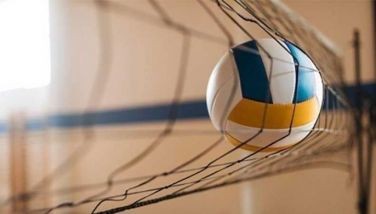On the merits of comparison
It has been argued that because outstanding Filipino scientists who publish in international journals can be found both in the Philippines and in other countries, Filipinos should feel proud, do not have to prove anything, and need not compare themselves to others.
But even among children, it is necessary and beneficial to make comparisons. The outcome of such comparisons is what determines who among them deserves to get a medal, who has learned enough to move to the next higher grade, and who should be in the swim team. Failure to properly evaluate performance by comparison is a characteristic of diploma mills that take money and, in exchange, provide not much more than an abundance of self-esteem. An international survey of kids’ math skills in relation to their self-perception revealed that among the various countries compared, US kids thought highly of their own math skills although, in reality, their abilities were among the worst. In contrast, kids in
Where would a country be if its people closed its eyes to the rest of the world and held on to a sense of pride based on heroes of the 1800s, nationalist politicians of the 1950s, and a scientific enterprise in which those who publish in international peer-reviewed journals are the exception, rather than the rule? Such a country would be where it is today.
It has been argued that research concerning “local” problems would not be of interest to international journals or their readers, so papers concerning such subjects only merit publication in local journals. However, local journals serve a relatively small scientific community, have a limited capacity for expert peer-review and, historically, have suffered from insufficient submissions of high quality. If research concerning local problems is not of general interest to the international scientific community, why are there research papers concerning the spread of rabies among raccoons in the US northeast, the nature of venoms in Philippine cone shells, the ecology of trees in Panama, the feeding behavior of bats in Peru published in prestigious journals such as Science, Nature and the US Proceedings of the National Academy of Sciences? What primarily determines whether papers get published or not in international, peer-reviewed journals is their quality. A fellow who built a career based on publishing exclusively in local, non-refereed journals once asked, “Why should I bother to publish in international journals — just so Americans can read my work?” According to this person, to spend taxpayers’ money doing research that results in manuscripts that could not survive expert peer-review, is to be nationalistic.
It can be argued that to dwell on poor performance, assessed through comparison with other countries, might lead to loss of morale. But, proper science is not done to win international contests or to inflate the national ego. Quantitative data are used, along with other information, to evaluate the productivity and impact of individual scientists, of groups of scientists in departments or institutions, or of entire scientific communities in countries. Most scientists are adults who can handle comparisons with others. A mature response to the unfavorable outcome of comparisons is to learn to do better.
Some world-class research is indeed being done by Filipinos in Philippine institutions. Many of them manage to do this despite excessively high teaching loads, low salaries, inadequate laboratory facilities, lack of access to scientific journals, and excessive red tape. It is in society’s best interest to create conditions to enable these scientists to do more and better science, as well as to reward them on the basis of their success. It is in society’s best interest for the number of productive scientists to grow. The available data demonstrate that the vast majority of them are unproductive and that change needs to occur. This realization, the desire for change, and decisions concerning the manner, direction and extent of change, can come from comparison with others.
* * *
Raul Kamantigue Suarez is a professor in the Department of Ecology, Evolution and Marine Biology, University of California, Santa Barbara, CA 93106-9610, USA and an editor of the Journal of Experimental Biology, Cambridge, UK. He can be contacted at [email protected].
- Latest





























